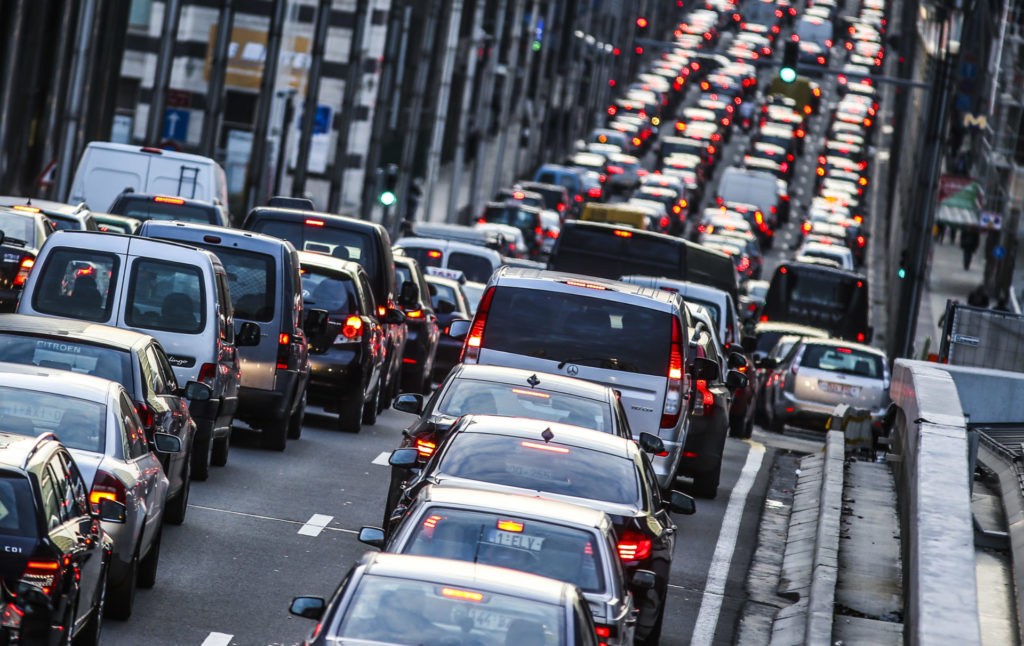An increase in teleworking after the coronavirus epidemic would have little effect on traffic congestion, according to a study by the federal planning office.
The study looked at the scenario of 39% of all employees working two days a week at home, the maximum number during the first lockdown, and found that the number of car journeys would only fall by 1.6% by 2040.
At present, 17% of employees work 1.6 days a week at home on average. But the number of journeys made has gone up by 4.4%, as people working from home continue to travel by car – to deliver children to and from school or go shopping – and make more trips than they did for simple home-to-work travel.
Since the start of the pandemic, the number of kilometres travelled has gone down by only a very modest 1.2%.
Travel from home to work would certainly go down, by 5.8%, but that would be compensated for by other journeys, the study says. However the traffic situation would improve in certain specific areas – fewer rush-hour trips, less congestion in urban areas, city centres and places where many people work, and fewer long-distance journeys.
Commuters coming into Brussels, including rail commuters, would be reduced by 23%. According to another recent study, 10% fewer cars coming into the city at peak times would cut the number of productive hours lost by 40%.
“To be honest, we also expected a greater impact on road traffic,” said Benoît Laine, economist at the federal planning bureau and co-author of the study.
“On the other hand, telework remains reserved for a minority of the working population – even when used voluntarily – and many teleworkers are already opting for other means of transport than the car.”
Where teleworking does have a significant effect, by contrast, is on the trains. Even two years ago, 37% of commuters were working from home from time to time, especially in the services and administrative fields, and among those who lived further from their work – as is the case for many people working in Brussels.
That was more than twice as many as the 17% of car commuters who did so. According to Laine, the scenario used in the latest study would see a decrease of 13-16% in the number of train journeys.
Alan Hope
The Brussels Times

